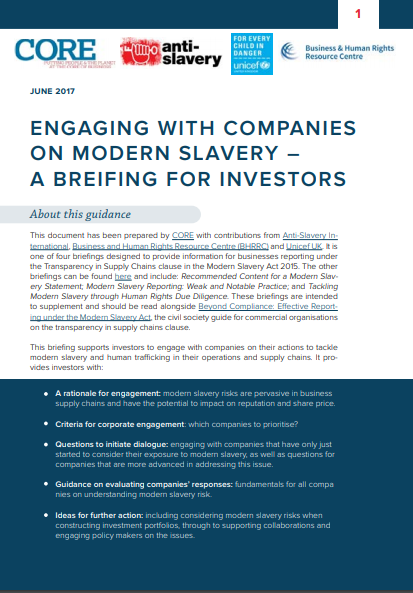This briefing supports investors to engage with companies on their actions to tackle
modern slavery and human trafficking in their operations and supply chains. It provides
investors with:
- A rationale for engagement: modern slavery risks are pervasive in business supply chains and have the potential to impact on reputation and share price.
- Criteria for corporate engagement: which companies to prioritise?
- Questions to initiate dialogue: engaging with companies that have only just started to consider their exposure to modern slavery, as well as questions for companies that are more advanced in addressing this issue.
- Guidance on evaluating companies’ responses: fundamentals for all companies on understanding modern slavery risk.
- Ideas for further action: including considering modern slavery risks when constructing investment portfolios, through to supporting ccooperations and engaging policy makers on the issues.

